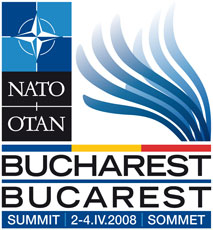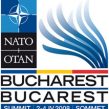
A DECISIVE WEEK IN EAST-WEST RELATIONS
Publication: Eurasia Daily Monitor Volume: 5 Issue: 63
By:

This week’s NATO summit in Bucharest, Romania, which might invite Ukraine and Georgia to join the alliance, is seen in Moscow as a moment of truth that could decide the future of European security. Russia’s Deputy Foreign Minister Georgy Karasin announced in the Duma that the inclusion of Ukraine in NATO would cause a major foreign policy crisis that in turn would undermine European stability. Karasin expressed the hope that the West would understand the grave consequences of a decision to press on with enlargement and would desist from opening the doors to Ukraine (RIA-Novosti, April 1).
At present the question of possible future NATO membership for Ukraine and Georgia is focused on whether the two nations receive a so-called Membership Action Plan or MAP in Bucharest. If Ukraine and Georgia get the MAP that their governments have been seeking, they will be on a fast course to membership that could come within a few years. Several Western European nations led by Germany, however, do not want to anger Moscow and have expressed reservations about granting a MAP to Ukraine and Georgia. A face-saving diplomatic formula is apparently being prepared that would acknowledge Ukrainian and Georgian aspirations to join and would emphasize the principle that NATO doors are open to all democratic European nations, while not granting Kiev and Tbilisi a MAP per se.
It is clear, on the one hand, that Western democracies cannot possibly reject Ukrainian and Georgian NATO aspirations as the Kremlin would dearly like. On the other hand, if—as in Moscow’s worst-case scenario—MAP is granted in Bucharest or sometime soon after, Ukrainian and Georgian accession will still take years. The entire confrontation over NATO enlargement into what the Kremlin considers its backyard is, in fact, a quarrel over accession in two to three or in three to four years.
In Moscow the foreign ministry and the state propaganda machine that controls all major media channels are at present unsure about how to react. To condemn Western imperialism and militarism for sneaking closer to Russia’s heartland would be an expected knee-jerk reaction; but after Bucharest, George Bush will fly to Sochi for an informal summit with Vladimir Putin that may be friendly and possibly lead to important decisions on arms control.
Putin alone decides Russian foreign policy and he always keeps his future decisions secret until the last moment, keeping not only foreign leaders but also his own ministers and cohorts in the dark. If Ukraine and Georgia do not get MAP per se, should the propaganda machine trumpet this as a major Russian foreign policy triumph or as an anti-Russian conspiracy, since NATO has welcomed possible future alliance membership of the two nations anyway? In Kiev Bush announced that the US supports MAP for Ukraine and that Russia does not have a veto power on Ukrainian NATO membership (RIA-Novosti, Rossia TV, April 1). In Sochi, however, Putin will be hosting Bush, so will the propaganda machine denounce him, as he “deserves” for such outrageous statements? Only Putin can decide, but has not yet uttered a clear command, so the propaganda machine chiefs have been left twiddling their thumbs.
In a referendum in Georgia in January, over 70 percent of voters supported NATO membership. In Ukraine, on the other hand, polls say that over 50 percent of the population are against it; but this does not comfort the Kremlin, which in the past has used vicious propaganda to distort public opinion and has rigged polls. The so-called elite does not believe in the people yielding any true power at home or anywhere else. During a recent press conference with visiting German Chancellor Angela Merkel, Putin said that Ukraine was being “pulled into NATO” by its elite against the will of the people (www.kremlin.ru, March 8). During Bush’s visit to Kiev, Rossia state TV deplored the main Ukrainian opposition Party of the Regions for not supporting anti-NATO, anti-American demonstrations organized by Ukrainian Communists and other smaller leftist parties (Rossia TV, April 1).
The tiny bunch of billionaire bureaucrats that rule Russia today are primarily motivated by their business interests and not by ideology like their predecessors during the Cold War. Their core business is trading in natural resources with the West, and they are open to doing deals with the West. Anti-Western propaganda is used to mobilize the impoverished Russian masses to support the superrich ruling clique, but a genuine new Cold War or arms race would be extremely bad for business (see EDM, March 6).
After some hesitation, Putin decided to go to Bucharest to take part in a NATO-Russia Council meeting at the level of heads of state, in addition to receiving Bush at Sochi the same week. This is a strong indication that the Kremlin is ready to make serious compromises with the West and scale down anti-Western rhetoric for the time being. A new Moscow-Washington detente may be interpreted for internal consumption as a validation by the West of the rigged Duma elections last December and the equally rigged presidential ones in March (see EDM, March 13). Putin will officially leave the Kremlin on May 7 and Dmitriy Medvedev will be inaugurated. But Putin will stay on as an all-powerful prime minister, and he apparently wants to show in Bucharest and Sochi that he is no lame duck but still the ultimate decision-maker in Moscow.




